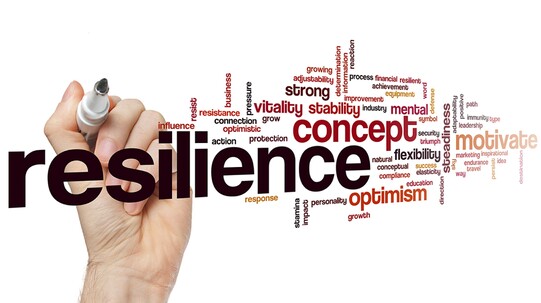More Than Just a Buzzword
Resilience seems to be the buzzword of the moment. On one hand, I intensely dislike it because I am tired of hearing about courses and techniques teaching us to be resilient. I believe we ought to have more courses teaching us to be respectful, to listen, to empathise, and to value people's feelings. We need to recognise that (for example) menopausal women need extra support in the workplace, rather than being told to "be more resilient."
But on the other hand, in today's fast-paced world, many of us face unprecedented levels of stress and uncertainty. We and our beautiful, mysterious brains are taking in more information and data in one day than our grandparents took in in a lifetime.
Whether it's due to career pressures, personal challenges, or global events, the need to build resilience has never been more critical. But how can we equip ourselves to not just survive but thrive in the face of adversity and change? Let’s explore this concept a bit more, because the more resilient we are, the better (ultimately) our wellbeing will be.
What is True Resilience?
True resilience is not about toughing it out or suppressing emotions. It's about developing a set of skills and a mindset that helps us navigate through life's challenges while maintaining our mental health and wellbeing. Here are some key components:
Self-Awareness: Understanding our own emotions and reactions is the first step towards resilience. This involves being mindful of our stress triggers and knowing how to manage them.
Adaptability: Life is unpredictable and being able to adapt to changes and new situations is crucial. This means being flexible in our thinking and open to new ways of doing things.
Social Support: Having a strong network of friends, family, and colleagues can provide emotional support and practical help when times are tough. Building and maintaining these relationships is vital.
Self-Care: Taking care of our physical and mental health through regular exercise, a balanced diet, and adequate sleep helps us stay resilient. Self-care also means taking time to relax and do things we enjoy.
Positive Thinking: Cultivating a positive outlook does not mean ignoring the bad stuff. It's about finding the silver lining in difficult situations and believing in our ability to overcome them.
Practical Steps to Build Resilience
Mindfulness and Meditation: Practices like mindfulness and meditation can help reduce stress and improve emotional regulation. They teach us to live in the moment and accept things as they are.
Setting Realistic Goals: Breaking down big challenges into smaller, manageable tasks can prevent overwhelm and increase our sense of accomplishment.
Seeking Professional Help: Sometimes, talking to a coach, therapist or counsellor can provide new perspectives and coping strategies. It's a sign of strength, not weakness, to seek help when needed.
Learning and Growth: Embracing a growth mindset, where we see challenges as opportunities to learn and grow, can enhance our resilience. This involves being open to feedback and willing to learn from our experiences.
Conclusion
Resilience is more than just a buzzword; it's a critical skill for navigating the complexities of modern life. While it's important to develop resilience, we must also strive to create environments that support empathy, understanding, and respect. By combining personal resilience with collective compassion, we can build a society where everyone has the opportunity to thrive.
Contact me if you would like to explore how I can help you with your resilience.

